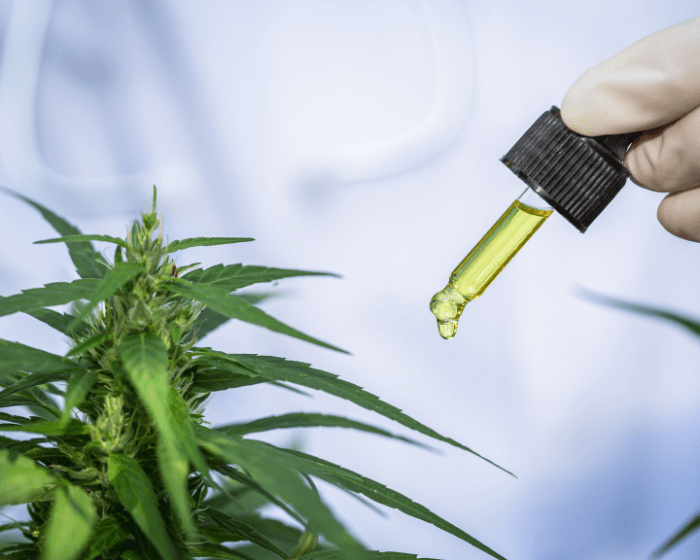
The U.S. House of Representatives passed a cannabis research bill July 26, with representatives from both sides of the aisle praising the bill. But a lawyer whose focus is drug policy said the bill will make it harder to study cannabis, especially CBD.
The Medical Marijuana and Cannabidiol Research Expansion Act (H.R. 8454) ostensibly aims to encourage research on the potential benefits of cannabis by streamlining the application process for researchers and removing barriers within the Food and Drug Administration.
The bill passed in the House by a decisive 325-95 vote. Each of the 216 Democrats present supported the measure. And a slight majority of Republicans voted for it: 109 in favor and 95 against.
A quick breakdown of what the bill would do, according to reporting by Marijuana Moment:
• Ensure applications to research cannabis are processed quickly by the U.S. attorney general’s office.
• Streamline the process for researchers requesting large quantities of cannabis.
• Encourage development of cannabis-derived medicines. For instance, by allowing registered educational and research institutions to cultivate cannabis for their own research.
• Allowing manufacturers to import cannabis for research into its therapeutic potential.
• Explicitly stating that it’s not a violation of the Controlled Substances Act for licensed physicians to discuss risks and benefits of cannabis products with patients.
Rep. Earl Blumenauer (D-Ore.) founder and co-chair of the Congressional Cannabis Caucus, said the bill would lift red tape at the federal level.
“For too long, the federal government has stood in the way of science and progress, creating barriers for researchers obtaining resources and approval to study cannabis,” Blumenauer said. “This bipartisan, bicameral legislation is an important first step to changing that.”
One critic is worried it will do the opposite.
Shane Pennington, a lawyer with experience in cannabis and drug policy, has cautioned against the bill, calling it “a counterproductive nightmare.”
According to Pennington, the bill will create new mandates for those researching extracts including CBD, requiring registration with the U.S. Drug Enforcement Administration. Currently, DEA registration isn’t required for extracts like CBD, which come from cannabis but aren’t themselves controlled substances.
“By imposing registration requirements on these otherwise-non-controlled substances, this bill dramatically increases barriers to cannabis research,” Pennington writes.
“By imposing registration requirements on these otherwise-non-controlled substances, this bill dramatically increases barriers to cannabis research.”
— Shane Pennington, Cannabis and Drug Policy Litigation Attorney, from On Drugs
Pennington also notes that the bill will have a limiting effect on who gets to conduct cannabis research and the type of research they’re allowed to pursue.
“The bill imposes various limits on who may conduct research (only certain DEA-registered institutions of higher learning, practitioners, or manufacturers), and what research they may pursue (essentially FDA-approved pre-clinical/clinical studies),” he writes. “Not only would these provisions place additional limitations on cannabis research that don’t exist under current law, but they would also reinforce the failed FDA/pharma model on cannabis research.”
Perhaps this is why the bill garnered support from Republicans who are somewhat skeptical of cannabis’s benefits. Take Congressman Andy Harris (R-Md.).
“As a physician who has conducted NIH-sponsored research, I am pleased that this bill has finally passed and that scientists will be able to research what medical marijuana can and cannot do,” Harris said. “While there is evidence to suggest that medical marijuana may be beneficial in the treatment of some diseases like glaucoma and epilepsy, only scientific research will prove the veracity of the many claims regarding efficacy for other diseases. Despite lacking much scientific research, over three dozen states have already legalized medical marijuana, and the American public deserves to know the effect modern marijuana has on the human body. While I support additional research for the use of medical marijuana, my position on recreational marijuana remains the same – I categorically oppose it.”
Will the Medical Marijuana and Cannabidiol Research Expansion Act pass in the Senate?
Seems likely, given its bipartisan support thus far.
Senator Dianne Feinstein (D-Calif.) was optimistic that the Senate would offer approval, and said the bill would ultimately speed the development of new cannabis-based medications.
“The bill will help get safe, FDA-approved, marijuana-derived medications safely to patients in need,” Feinstein said. “I am confident that the Senate will quickly pass this amended version of the bill and send it to President Biden for his signature.”
With the Act expected to pass in the Senate and the president’s pen seemingly at the ready, it seems that for better or worse, when it comes to CBD tighter regulations may define the research of the future.








































